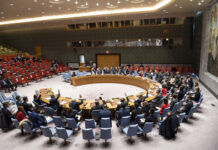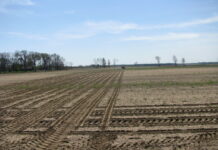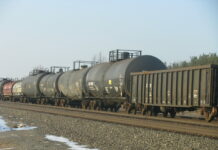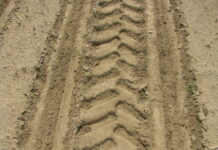Photo Credit: Global Diaspora News (www.GlobalDiasporaNews.com).
In an effort to improve the prospects of sustainable peace in regions affected by conflicts, Crisis Group and the World Food Programme (WFP) have signed a multi-year partnership agreement, building on their existing strong relationship since 2021.
This partnership marks a significant step forward in promoting conflict sensitivity in humanitarian aid. Through this agreement, Crisis Group will use its expertise to provide conflict analysis and recommendations to WFP staff at all levels, helping to enhance their understanding of the conflict dynamics in the countries in which they work and improve their capacity to design conflict-sensitive programs which adhere to the principle of “Do-No-Harm”.
“We are delighted to renew our partnership with the World Food Programme and to contribute to sustainable pathways to peace in conflict-affected regions”, said Comfort Ero, Crisis Group’s President & CEO. “Crisis Group conducts in-country research on 61 conflicts worldwide and is uniquely placed to provide understanding and insight into each unique environment in which WFP operates”.
The UN World Food Programme is the world’s largest humanitarian organisation, saving lives in emergencies and using food assistance to build a pathway to peace, stability and prosperity for people recovering from conflict, disasters, and the impact of climate change. Its 2020 Nobel Prize citation praised the organisation “for its efforts to combat hunger, for its contribution to bettering conditions for peace in conflict-affected areas, and for acting as a driving force to prevent the use of hunger as a weapon of war and conflict”.
The International Crisis Group is widely recognised as one of the world’s leading, and independent, sources of analysis and advice to governments and inter-governmental bodies on the prevention and resolution of deadly conflict. Crisis Group operates across the globe and uses expert field research, analysis of crises from the standpoints of all parties and engagement with policymakers to avert conflict.
Source of original article: RSS (www.crisisgroup.org).
The content of this article does not necessarily reflect the views or opinion of Global Diaspora News (www.GlobalDiasporaNews.com).
To submit your press release: (https://www.GlobalDiasporaNews.com/pr).
To advertise on Global Diaspora News: (www.GlobalDiasporaNews.com/ads).
Sign up to Global Diaspora News newsletter (https://www.GlobalDiasporaNews.com/newsletter/) to start receiving updates and opportunities directly in your email inbox for free.


































